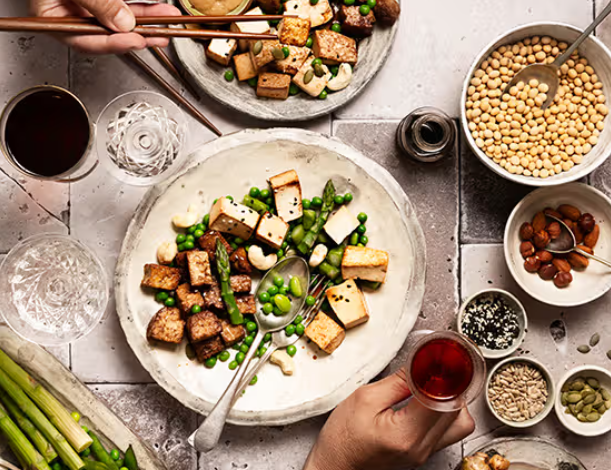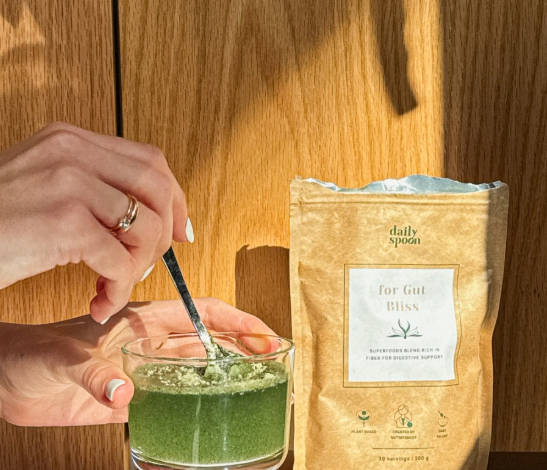
Top Allergen-Friendly Vegan Protein Sources
Hello there, beautiful!
Living a vegan lifestyle has been one of the best choices I’ve made for my health, the planet, and of course, the animals. There’s an abundance of delicious plant-based foods out there, and with a little creativity, veganizing your favorite dishes is a breeze. No deprivation here, just vibrant, healthy eating! However, I know many of you have questions about how to get enough protein on a vegan diet, especially if you have allergies to common foods like soy, grains, gluten, or legumes.
In this post, I want to focus on providing options for those with sensitivities, so you can still enjoy nutrient-packed meals that are rich in protein. Let’s dive into some amazing, allergen-friendly vegan protein sources, along with some tasty recipes and meal ideas.
15 Allergen-Friendly Vegan Protein-Rich Foods
If you’re avoiding soy, gluten, or legumes, don’t worry—there are still plenty of plant-based foods that are rich in protein and safe for your dietary needs. Here are some of the best options:
1. Seeds (Hemp, Pumpkin, Sunflower, Chia)
For those of you with nut allergies, seeds are a fantastic alternative. They can be turned into seed butters and used in recipes just like nuts.
- Hemp Seeds: Three tablespoons provide about 10 grams of protein. These seeds are also packed with fiber, omega-3 and omega-6 fatty acids, and magnesium, which can boost energy and improve your mood.
- Pumpkin Seeds: One-quarter cup delivers 10 grams of protein.
- Sunflower Seeds: A quarter cup gives you 6 grams of protein.
- Chia Seeds: Just two tablespoons offer 6 grams of protein.
2. Nuts (Pistachios, Walnuts, Almonds)
If you’re okay with nuts, these are fantastic protein-packed options:
- Pistachios: 6 grams of protein per ¼ cup.
- Walnuts: 4.5 grams of protein per ¼ cup.
- Almonds: A quarter cup provides 8 grams of protein. Almond butter is also a great alternative and full of healthy fats.
3. Leafy Greens (Kale, Spinach, Broccoli)
Some vegetables are packed with protein, making them great additions to your diet:
- Kale: 4 grams of protein per 2 cups.
- Spinach: 5 grams of protein per 1 cup, plus it’s loaded with iron, folate, and vitamin C.
- Broccoli: One cup contains 5 grams of protein.
4. Spirulina
This nutrient-dense algae is a powerhouse of protein. Just 1 tablespoon of dried spirulina gives you 4 grams of protein, along with B vitamins, iron, and essential minerals. It’s also known for its anti-inflammatory properties.
5. Quinoa
Although it’s often mistaken for a grain, quinoa is actually a seed. One cup of cooked quinoa contains 8 grams of protein and is a complete protein source, meaning it has all the essential amino acids your body needs.
6. Avocado
In addition to being an excellent source of healthy fats, one avocado provides 7 grams of protein. It’s also great for heart health and can help lower cholesterol.
7. Nutritional Yeast
This popular vegan cheese alternative provides 4 grams of protein in just 2 tablespoons and is also rich in B vitamins.
8. Tahini
If you love hummus, you’ll be happy to know that 2 tablespoons of tahini (made from sesame seeds) contains 5 grams of protein. It’s also a good source of healthy fats.
More Protein Sources to Consider
If you’re not sensitive to certain foods, here are some additional protein-rich sources:
- Seitan: Made from wheat gluten, seitan is a great soy-free protein source but must be avoided by those with gluten sensitivities or Celiac disease.
- Legumes: Beans like chickpeas, lentils, and black beans are fantastic for protein, but they’re not suitable for those avoiding legumes.
- Jackfruit: Though not high in protein, jackfruit is a good source of fiber and can be used in savory dishes to mimic meat texture.
For a soy-free soy-sauce substitute, you can try coconut aminos, which offers a similar umami flavor without the soy.
Protein-Packed, Allergen-Friendly Vegan Recipes
Here are a few delicious, allergen-free recipes that will help you meet your protein needs without compromising flavor:
1. Quinoa Quickie
Quinoa is versatile and can be used in so many dishes. Try a sweet potato and quinoa bowl with walnuts for a tasty, high-protein meal.
2. Magnificent Milks
Instead of dairy, you can make plant-based milks like hemp, flax, or almond milk. These are easy to make at home or find at the store.
3. Delicious Dips
Snack on veggies with dips made from avocados, nuts, seeds, or seed butters. You can also try my Artichoke Aioli for a creamy and protein-rich dip.
4. Scrumptious Smoothies
Start your day with a protein-packed smoothie. Combine almond milk, kale, frozen fruit, hemp hearts, and spirulina for a nutritious boost. Add plant-based protein powder for an extra kick!
5. Seeds-A-Go-Go
Top your salads or soups with pumpkin or sunflower seeds for extra crunch and protein, or make a nut/seed-based pesto to drizzle over pasta.
6. Be a Chia Champ
Chia seeds are perfect for a high-protein breakfast or dessert. Try making my Strawberry Chia Pudding for a satisfying, nutrient-rich treat.
Sample Menu for a Protein-Filled Day
If you’re wondering how to incorporate these protein-rich foods into your day, here’s a sample menu for a moderately active adult who weighs 140 pounds. This menu provides about 50 grams of protein:
- Breakfast: Body Builder Smoothie = 12g protein
- Morning Snack: 1 green apple + 2 tablespoons almond butter = 7g protein
- Lunch: Zucchini noodles with Dill Hemp Seed Pesto = 6g protein
- Afternoon Snack: ½ cup Artichoke Aioli with raw veggies = 11g protein
- Dinner: Vegetable stir-fry + 1 cup cooked quinoa = 13g protein
- Dessert: Chia pudding = 6g protein
Total = 55 grams of protein
Other Essential Nutrients for a Vegan Diet
When following a vegan diet, it’s important to ensure you’re getting all the nutrients your body needs. Here are a few to watch out for:
- Lysine: An amino acid found in quinoa, almonds, pistachios, and complete proteins like spirulina and hemp seeds.
- Calcium: Found in kale, chia seeds, collard greens, and tahini.
- Vitamin D: Best obtained from sunlight or supplements.
- Vitamin B12: Only found in animal products and fortified foods—consider a B-complex or multivitamin that includes B12.
- Zinc: Found in pumpkin seeds and multivitamins.
By choosing the right foods and staying mindful of your nutrient intake, you can enjoy a balanced, protein-rich vegan diet without any allergies holding you back. Happy eating!






